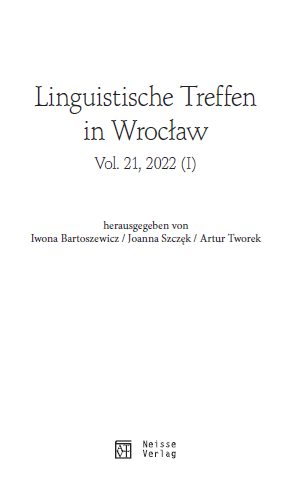Pięćdziesiąt twarzy kapitalizmu. O profilowaniu pojęcia kapitalizm w języku polskim (na podstawie encyklopedii i słowników języka polskiego)
Fifty Shades of Capitalism. Shaping of the Concept of Capitalism in Polish (on the Basis of Encyclopedias and Dictionaries of the Polish Language)
Author(s): Kamil UryszekSubject(s): Economic history, Lexis, Western Slavic Languages, WW II and following years (1940 - 1949), Post-War period (1950 - 1989)
Published by: Oficyna Wydawnicza ATUT – Wrocławskie Wydawnictwo Oświatowe
Keywords: Capitalism; lexicographic analysis; linguistic picture of the world; ethnolinguistics;
Summary/Abstract: The designations of systemic doctrines are labels and landmarks in the public debate: in relation to them, its participants and observers define their political identity, at the same time projecting ideas about the identity of their opponents. Therefore, their semantic content differs depending on who and for what purpose calls these designations in the public space. This is the main reason why such names have become the subject of attention from researchers interested in language as an element of social life. One of such designations is capitalism – one of the key concepts of the Polish political transformation. However, this designation and the concept behind it were the subject of linguists’ attention to a lesser extent than it might seem. I would like to fill this gap. My aim was to present the shaping of the concept of capitalism in Polish in various historical periods. I analyzed the linguistic material taken from Polish encyclopedias and dictionaries. Being aware that the selection of sources is not representative of the entire Polish language, I treat the results of the analysis as an introduction to further research. I referred to the concept of the linguistic image of the world. Capitalism appears for the first time in Polish encyclopedias and dictionaries at the turn of the 19th and 20th centuries. From that moment on, the scope of definitions and the number of their semantic components constantly increased, and their final number, type and hierarchy differed depending on the historical period in question. The two great turning points in the profiling of the concept of capitalism are the years 1945 and 1989. This allows us to formulate a thesis about the important role of encyclopedias and dictionaries in petrifying a specific resource of knowledge and legitimizing the political regime.
Journal: Linguistische Treffen in Wrocław
- Issue Year: 21/2022
- Issue No: 1
- Page Range: 419-438
- Page Count: 20
- Language: Polish

